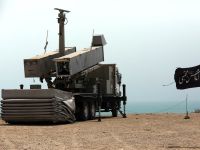General Data
Population 29.1 million (1999 estimate)
Religions 99% Islam; less than 1% Jewish
Government Constitutional Monarchy
Languages Arabic (official), French (business), Berber dialects, Spanish (in North)
Workweek Monday – Friday
8:30 - 12:30; 4:00. - 18:30
Monetary Unit Moroccan Dirhams (MD)
Exchange Rate MD 9.8=US$ 1
Current Political Climate
After ruling for 38 years, King Hassan died in July 1999 from a heart attack. Immediately after his death, his son, Crown Prince Sidi Mohammed, 37, was anointed the new king.
The new king has not had much time to adjust to his job. There are critical political and economic issues confronting the country that desperately need to be addressed.
One such problem is the disputed Western Sahara region, in which the kingdom has been at odds with its neighbor, Algeria. Morocco claims this former Spanish colony is under its sovereignty, while Algeria backs the Polisario guerrillas who are seeking independence.
In early November, the new king publicly offered proposals for ending the dispute, including holding elections for a royal advisory council in the disputed territory. He also affirmed the country's commitment to a UN-sponsored peace plan, in which a referendum will be held to determine the region's future. His main condition was that all potential voters must be able to participate. Differing views regarding voter eligibility have already caused long delays in the referendum, now scheduled for July 2000.
The new king must also try and pick up where his father left in trying to mend relations with Algeria. Problems arose in 1994 after Algerian gunmen attacked a Moroccan hotel. Before his death, King Hassan was due to meet the Algerian president to try and reconcile differences.
Morocco is one of few Arab countries to have good relations with Israel. And while not especially central to the Arab-Israeli peace process, Hassan II unreservedly supported and instigated moves towards Israeli-Palestinian reconciliation.
While facing tough economic situations, the new king is working with a much healthier economy because of reforms implemented by his father. In early September 1996, Moroccans voted almost unanimously for the King's plan to create a powerful upper-house of parliament and to strengthen economic development efforts as well as Morocco's regional influence. According to official results, 99.56 percent, or more than 10.15 million of the 12.35 million eligible voters, voiced approval for the plan.
The plan called for the division of the existing 333-seat parliament into two houses. The lower house, the New House of Representatives, will seat members elected directly by the public. The upper-house, the Chamber of Counselors, will be elected indirectly, mainly through local councils, professional bodies and trade unions, and the Chamber will have the power to force votes of no-confidence and to topple the government.
The changes will assist the government in developing Morocco's rural areas, where half of the population now resides. Direct elections to the second house should spread influence to rural areas that have traditionally had little voice in political matters. Despite the poverty in rural Morocco (a population of 1.5 million with a per capita income of just over US$ 200), and the high illiteracy rate, the rural areas contribute significantly to the national economy, mostly through the export of agricultural products.
© 2000 Mena Report (www.menareport.com)







